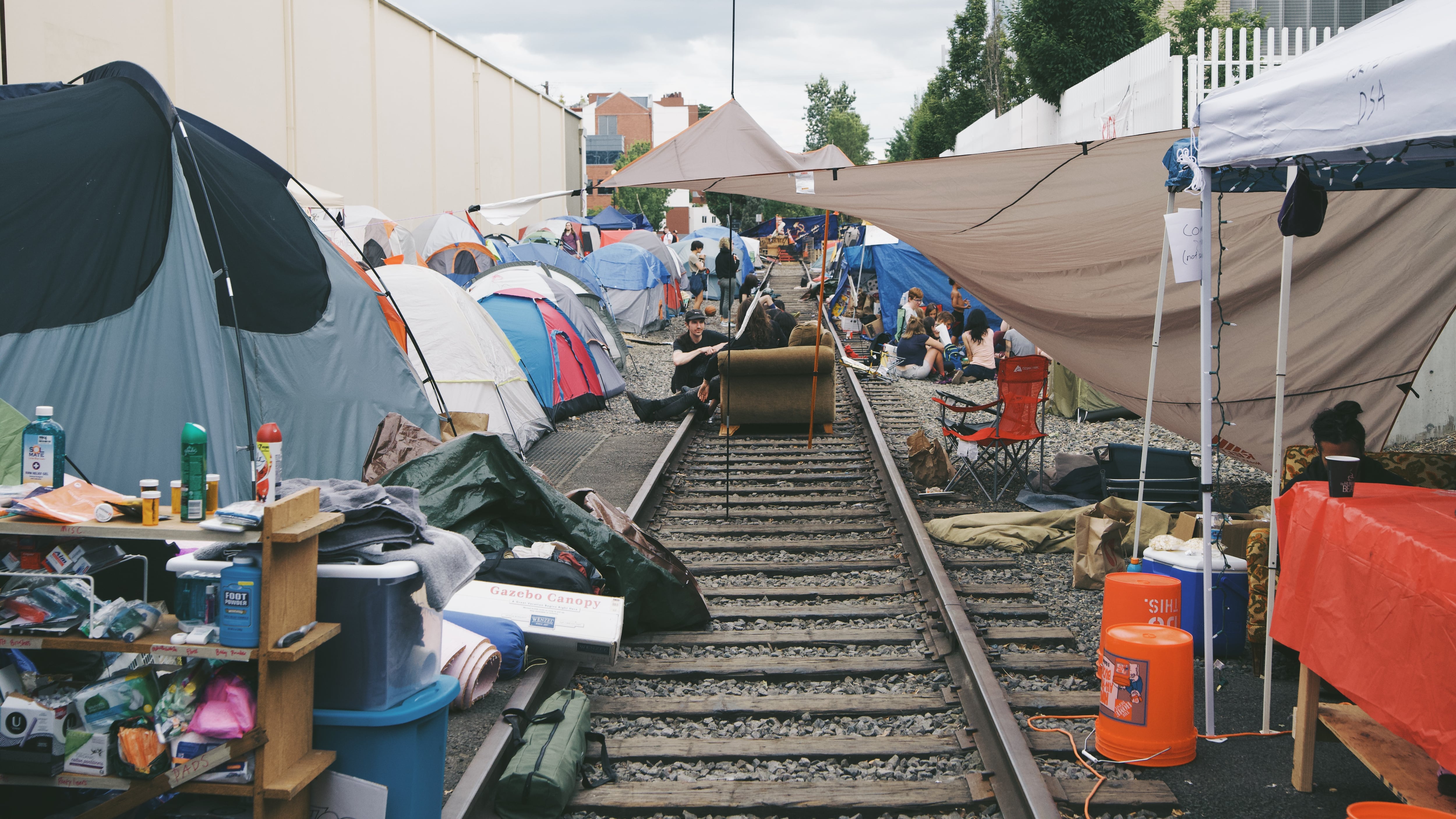Photos by Daniel Stindt.
Like the child detention camps it opposes, Portland's ICE blockade has grown into a tent city.
The occupation of the U.S. Immigration and Customs Enforcement headquarters on the South Waterfront has over six days expanded from a scattering of chairs to a village of more than 80 tents, four portable toilets, six couches, a commissary and a medic's office.
The protest now closely resembles the Occupy Portland camps that seized two downtown parks in 2011. Once again, a Portland mayor has sanctioned the takeover—but this time, the target is a federal agency, and the goal is to directly impede its work.

Mayor Ted Wheeler has pledged to not intervene with Occupy ICE, saying he considers the work of federal immigration agents "un-American" and doesn't want Portland police to aid ICE's operations.
The blockade would now be difficult to dislodge anyhow.
"We've seen tremendous support," says Mary Ann Warner, an occupation organizer. "We're seeing so much food. I don't think anyone's going hungry."

The protest, blocking the front doors and driveway of ICE's building along Southwest Macadam Avenue, has forced the suspension of agency work since June 18. The Portland occupation, the first nationwide, is an attempt to disrupt President Donald Trump's "zero tolerance" policy that has treated refugees seeking asylum as criminals and separated small children from their parents.
Related: ICE shut down its Portland office after protesters blocked the entrance.
Protesters say they intend to stay until ICE removes its operations from the city.

The tents, tarps and protest signs stretch south along the ICE building, forming an ad hoc main street along a bike path and trolley tracks, protected at both ends by barricades made from wooden pallets. Organizers say the walls are intended as protection against anyone who would use a vehicle as a weapon against protesters—a frightening plausible scenario to antifascist demonstrators who have seen similar attacks from Charlottesville, Va. to Vancouver, Wash.
Related: Landlord of Portland's ICE offices admits he was at the wheel of a Mercedes that struck a protester.
On Friday night, as demonstrators practiced de-escalation techniques for hostile situations and broke challah to celebrate Shabbat, cooks in the tent kitchen provided cheese sandwiches, vegan lentil stew and fruit salad. (The spread also included several takeout containers that appeared to hold leftovers from the nearby Old Spaghetti Factory.)

The protesters had opened an engineering center—in charge of drilling together the pallets—as well as a day-care center, a dishwashing station and a medic's tent. A wooden cupboard with filled with toiletries: shaving cream, tampons, soap, deodorant and ibuprofen.
"Do you have mental health care?" a young woman asked the medics on call. They replied that organizers were seeking therapists for the camp.
Warner says financial donations are being used to aid undocumented immigrants whose appointments with federal officials have been postponed during the blockade.

This Sunday, a rally at Occupy ICE is expected to draw local and state officials to what is becoming a symbol of civic resistance to the president's war at the border.
"Keep coming," Warner says. "This is important. If you're not vocally against Trump, I guess we can say you're with him."

